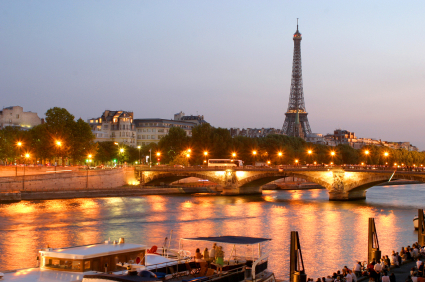
Faites simple (keep it simple), Escoffier advised and every great cook learns. The master was most likely referring to solid food, but by my lights, the rule should also cover liquid food, which is how the French regard wine. It has calories; it has nutrients; it has flavors. Its potential as an intoxicant doesn’t loom large in our thinking, (or drinking), as most French consider wine a sacred gift, to be enjoyed but not abused. The French poet Baudelaire said that if wine were to disappear from the human production, there would be a void in the human health and intelligence, and that void would be worse than all the excesses it’s guilty of. We drink it not to dull our senses but to awaken them. And it is vitally important to our enjoyment of food.
My mother, who taught me from an early age to value simplicity in all things, never served any apéritif but Champagne. Her reasoning was simple: hard liquor requires a bar, special paraphernalia, a variety of glasses, as well as messy shaking or stirring. More important, it numbs more than it tickles the taste buds. When you’ve spent time and money preparing delicious food for your guests, the last thing you want is to render them unable to taste it. That will eliminate one of the most important topics of conversation!
These days, after years of steady growth in wine appreciation, I notice a competing trend among Americans: a renaissance of hard liquor drinking. At restaurants, it’s very common, especially among the young, to order something hard while waiting at the bar and then continue with the same drink over dinner. The alcohol content of such beverages can be 3-4 times greater than the same amount of wine, so you are getting vastly more calories together with a duller sense of taste. Also dulled is your natural sense of contentment, and you invariably eat more. Maybe it’s the key to how some restaurants survive serving mediocre food. (It’s certainly true that profit margins on booze are much higher than they are on food.)
A Food Group Unto Itself
If you haven’t already been converted to the pleasures of wine, you have deprived your taste buds of a world of flavors, and perhaps left yourself vulnerable to seeking compensation with too much food. Wine is not only the perfect accompaniment to a meal, creating a complex interplay of taste that stimulates the mind, creating a much more satisfying experience. But it also elevates the meal’s ritual value, helping you to see eating in a different light: it lends an atmosphere of seriousness, refinement and luxury, all of which counter the tendency to eat mindlessly and disrespectfully. (If you’ve opened a bottle of wine, you’re not likely to eat in front of the television!)
Wine can also enhance your health if absorbed in small daily doses and always, always, ALWAYS with food. (French women find it utterly odd to sit sipping a glass of Chardonnay, as if it were a cocktail. The full taste of wine reveals itself only when paired with the right food.) Aside from containing fewer calories than any other alcoholic drink, fine wine is also full of nutrients, and recognized to thin the blood and lower your blood pressure and bad cholesterol. How many undiluted pleasures can make such claims?
For Americans the trouble seems to be either intimidation—”which wine should I pick?”—or false assumptions—”wine? oh sure, we have some on special occasions.” For French people, wine is a part of everyday life, and most don’t fuss too much over the choices. Most French in fact know only about the wines of the region they live in. Nevertheless, I believe it is an important reason why French women don’t get fat
